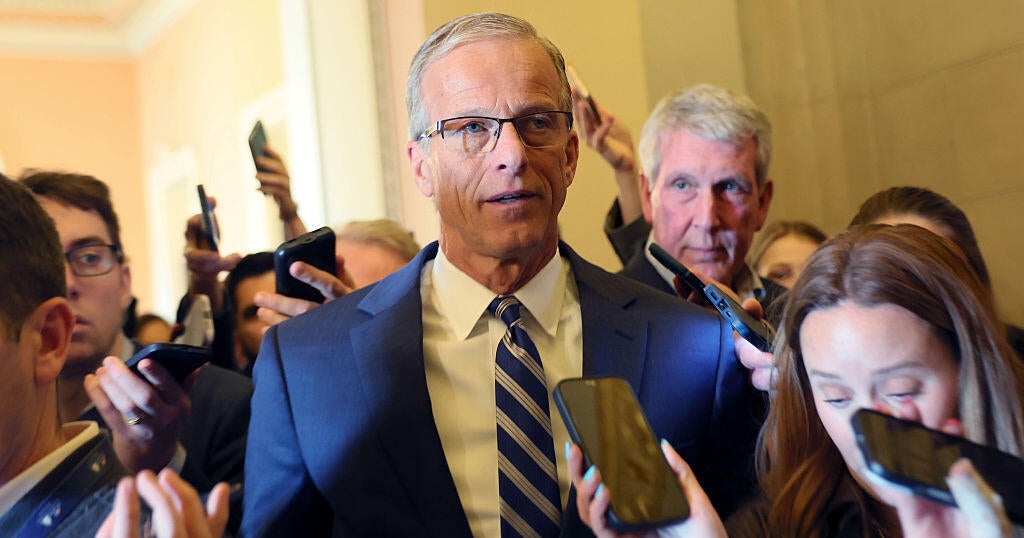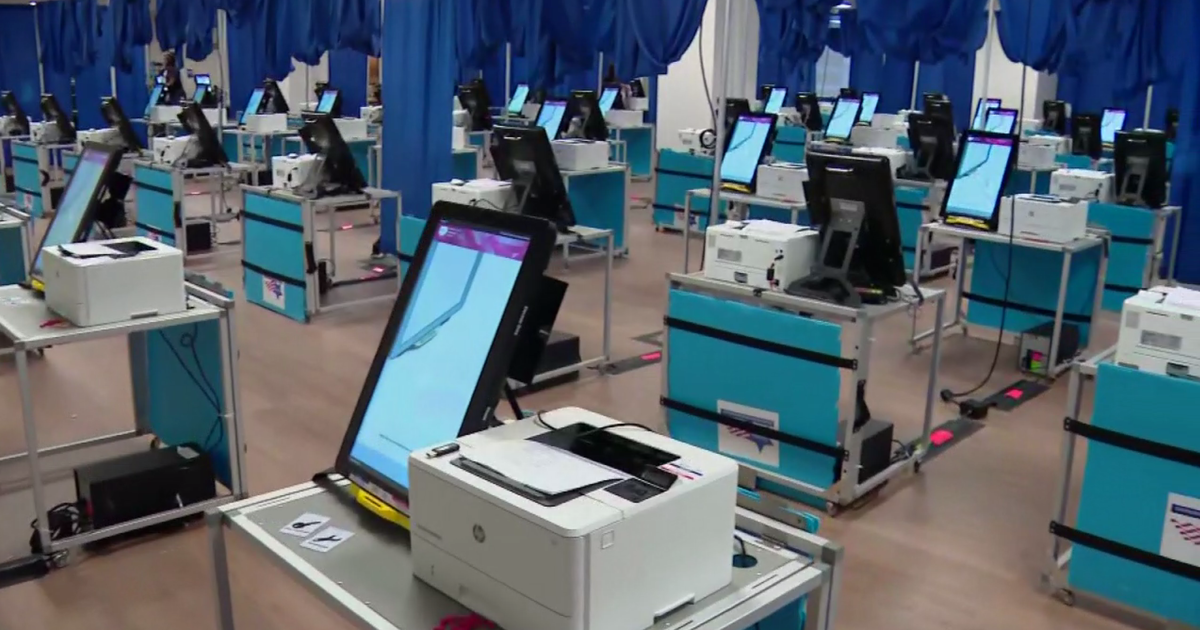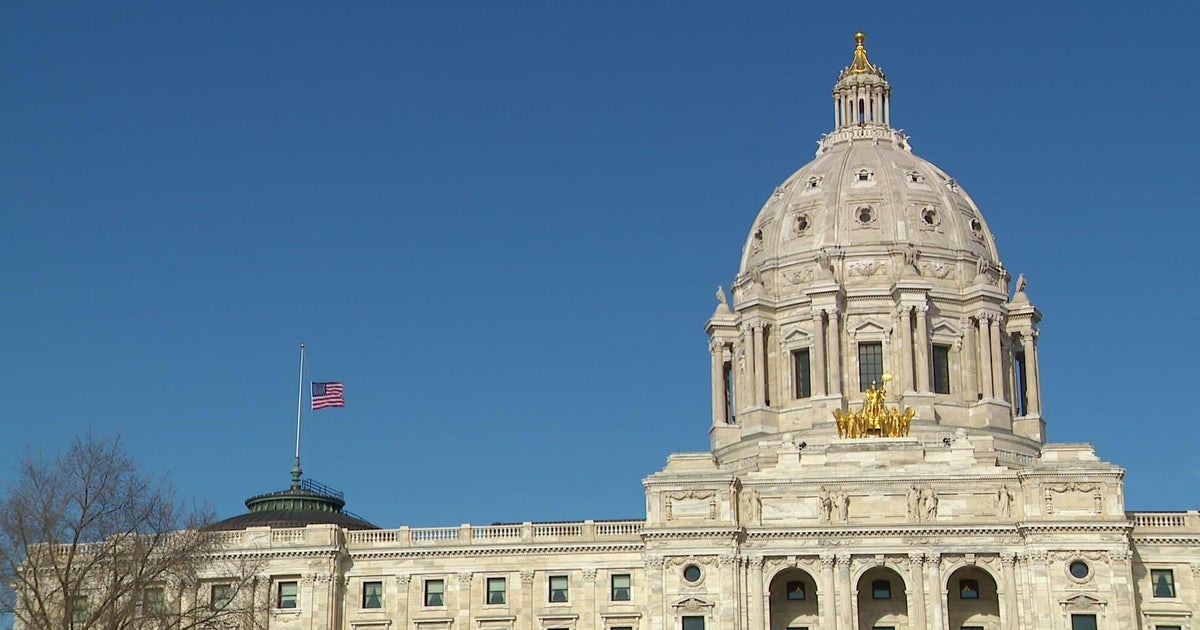Congress faces long to-do list upon return to Washington
Washington — Both chambers of Congress are back on Capitol Hill together Monday for the first time since late July, and lawmakers are staring down a lengthy to-do list of legislative items they must address in the coming weeks.
The slew of deadlines, some self-imposed, tees up a flurry of legislative activity for the House and Senate and leaves Democratic leaders navigating divisions not only with Republicans, but also within their own party.
"The next few weeks will be critical weeks for the Senate," Senate Majority Leader Chuck Schumer previewed during remarks on the Senate floor Monday. "Members should prepare for the possibility of working late nights and into the weekend."
The most immediate cliff facing lawmakers is a September 30 deadline to fund the government and stave off a partial government shutdown. But the White House is also sounding the alarm about the looming debt crisis, with Treasury Secretary Janet Yellen warning that a failure by Congress to raise or suspend the debt ceiling would have enormous economic consequences.
Democrats said Monday that they plan to include a debt ceiling suspension in a short-term government funding and disaster relief bill, setting up a showdown with Republicans who immediately vowed to oppose the measure if it includes a debt ceiling pause.
Alongside the two fiscal roadblocks, Democrats are hoping to deliver to President Biden a pair of legislative packages that anchor his economic agenda, though the path forward for the bills has been muddied by intraparty disputes.
Here are the items on Congress' agenda as the two chambers gavel back into session.
Government funding
The House Rules Committee convened Monday to take up three bills, including a stopgap measure that will keep the federal government funded at its current levels through December.
Text of the continuing resolution has not been made public, but House Speaker Nancy Pelosi and Schumer said in a statement it will include a suspension of the debt limit through December 2022.
Schumer and Pelosi said the short-term measure will also include $14 billion in disaster assistance for states hit hard by recent hurricanes and fires, as well as $6.4 billion for efforts to relocate Afghan refugees, money that was requested by the White House.
Congress has until September 30 to clear the must-pass measure to avoid a lapse in government funding and skirt a partial government shutdown.
Among the bills discussed by the Rules Committee on Monday was a reproductive rights measure that would codify the right to an abortion. Pelosi said the House would vote on the bill upon its return to Washington after the Supreme Court declined to block a Texas law banning abortion after six weeks of pregnancy, but it's unlikely to clear the Senate.
Debt ceiling
The Treasury Department estimates the federal government's borrowing authority will expire in October, and the White House and administration officials are issuing dire warnings to Congress of the consequences of inaction, which would lead the U.S. to default on its debts.
While the White House is pushing for a bipartisan vote to raise the debt ceiling, Senate Minority Leader Mitch McConnell has said the responsibility to do so rests solely with Democrats, who control the presidency and both chambers of Congress.
To avert a debt crisis without the GOP, the Kentucky Republican has suggested Democrats include a provision to suspend the debt ceiling in a sweeping $3.5 trillion social spending package that is being crafted by Congress.
Democratic leaders have balked at McConnell's suggestion, and Pelosi and Schumer said Monday that addressing the debt limit is a responsibility shared by members of both parties.
"Addressing the debt limit is about meeting obligations the government has already made, like the bipartisan emergency COVID relief legislation from December as well as vital payments to Social Security recipients and our veterans," they said. "Furthermore, as the administration warned last week, a reckless Republican-forced default could plunge the country into a recession."
But McConnell reiterated his opposition to backing any legislation that includes a debt ceiling suspension, saying on the Senate floor that Democrats "will not get Senate Republicans' help with raising the debt limit."
$1 trillion bipartisan infrastructure bill
When the House voted in August to approve a budget blueprint that begins the process Democrats are using to pass their $3.5 trillion spending package, it also advanced the $1 trillion bipartisan infrastructure bill negotiated by a group of senators and the White House.
The House vote came after wrangling between Pelosi and a group of moderate Democrats who threatened to oppose the budget framework if the lower chamber didn't vote on the narrow infrastructure bill first.
To mollify the moderate Democrats, Pelosi pledged to bring the infrastructure plan, which funds improvements to the nation's physical infrastructure, to the House floor for a vote by September 27.
But it remains to be seen whether Pelosi will follow through with the pledge, as the House is still working to put together the broader $3.5 trillion package. Further complicating the path forward in the House is a warning from progressive Democrats that they will only vote for the infrastructure bill after passing the larger plan, which isn't yet finished.
$3.5 trillion social spending package
While Democrats don't have date for approving their wide-ranging spending package set in stone, progressive Democrats have threatened to tank the $1 trillion bipartisan infrastructure bill if it's taken up before the $3.5 trillion legislation, which will likely be scaled back in the Senate.
House committees last week completed work crafting their respective portions of the package, and the legislation now heads to the House Budget Committee.
The package includes Democrats' plans for universal pre-K, child and elder care, combating climate change and expanding Medicare, but there is an internal party dispute over the size of the measure.
Democratic Senators Joe Manchin of West Virginia and Kyrsten Sinema of Arizona oppose the $3.5 trillion price tag, while Senate Budget Committee Chairman Bernie Sanders of Vermont said Sunday on "Face the Nation" that figure was the result of an agreement between a group of Senate Democrats and would not be trimmed.
Democrats are using a tool called budget reconciliation to fast-track the package, which allows it to clear the Senate with a simple majority. But opposition from Manchin or Sinema would kill the measure.
Its passage, as well as that of the $1 trillion bipartisan infrastructure bill, would be a massive victory for Mr. Biden and Democrats, as the two pieces of legislation make up significant portions of his domestic policy agenda and include policies long pushed by Democrats.



